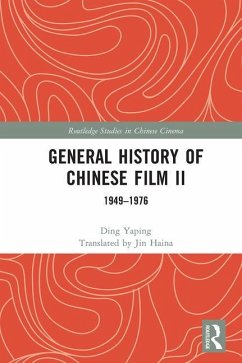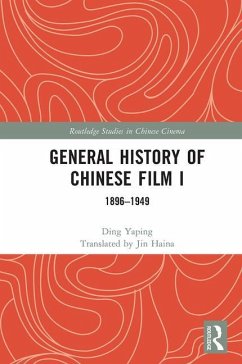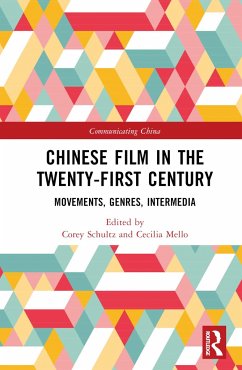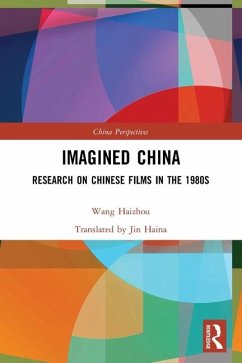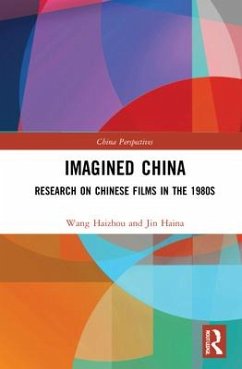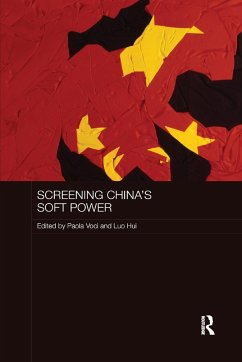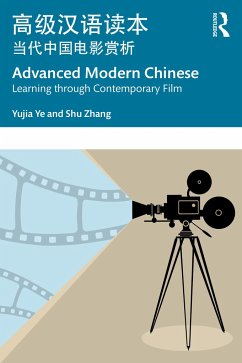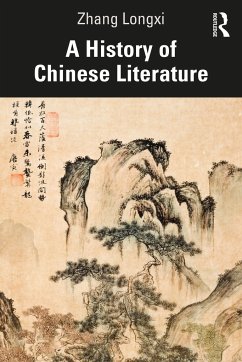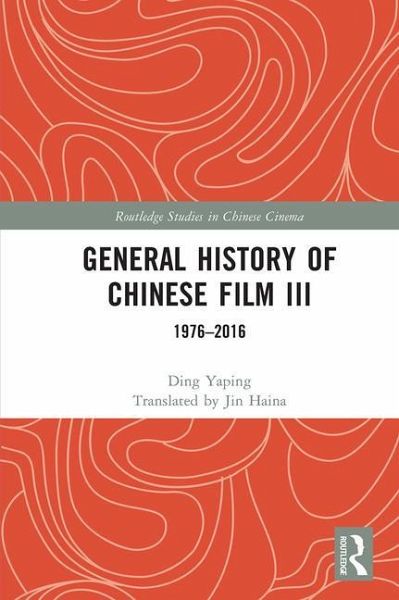
General History of Chinese Film III
1976-2016
Übersetzung: Haina, Jin
Versandkostenfrei!
Versandfertig in 6-10 Tagen
54,99 €
inkl. MwSt.
Weitere Ausgaben:

PAYBACK Punkte
27 °P sammeln!
The Reform and Opening-up of China since the late 1970s has not only transformed the economic and political situation of the country but also transformed the Chinese film industry. This volume focuses on the 40 years of the history of Chinese film in the post-Mao era.As all aspects of film production, distribution, and exhibition have been commercialized, Chinese film has become an industry of immense scale and has grown by leaps and bounds. Meanwhile, contemporary Chinese film is marked by a new zeitgeist, with Chinese film closely integrated with Chinese society and the economy. The author a...
The Reform and Opening-up of China since the late 1970s has not only transformed the economic and political situation of the country but also transformed the Chinese film industry. This volume focuses on the 40 years of the history of Chinese film in the post-Mao era.
As all aspects of film production, distribution, and exhibition have been commercialized, Chinese film has become an industry of immense scale and has grown by leaps and bounds. Meanwhile, contemporary Chinese film is marked by a new zeitgeist, with Chinese film closely integrated with Chinese society and the economy. The author argues that the Chinese film industry clearly stands at a turning point where the future of Chinese film and the way to further awaken, change, and shape film production have become important issues worth consideration in contemporary film history.
The book will be an essential reading for scholars and students in film studies, Chinese studies, cultural studies and media studies, helping readers to develop a comprehensive understanding of Chinese film.
As all aspects of film production, distribution, and exhibition have been commercialized, Chinese film has become an industry of immense scale and has grown by leaps and bounds. Meanwhile, contemporary Chinese film is marked by a new zeitgeist, with Chinese film closely integrated with Chinese society and the economy. The author argues that the Chinese film industry clearly stands at a turning point where the future of Chinese film and the way to further awaken, change, and shape film production have become important issues worth consideration in contemporary film history.
The book will be an essential reading for scholars and students in film studies, Chinese studies, cultural studies and media studies, helping readers to develop a comprehensive understanding of Chinese film.





